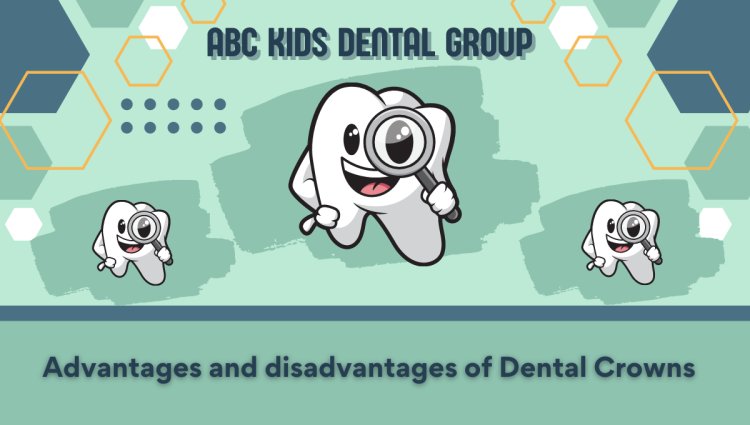Advantages and disadvantages of Dental Crowns
Dental crowns are an effective method to restore a tooth that was damaged in a certain manner and offers distinct advantages contrasted to other alternatives.

Dental crowns are an effective method to restore a tooth that was damaged in a certain manner and offers distinct advantages contrasted to other alternatives. However, there are certain disadvantages to crowns that must be considered when making the most appropriate choice for every patient. This article will outline the principal advantages and drawbacks that dental crowns offer.
Benefits of Dental Crowns
Dental crowns are a suitable solution to many dental issues:
- Assist a tooth that's been seriously damaged due to decay
- Make sure that a tooth is lost its luster from being damaged further
- Guard a tooth following the root canal procedure
- Take a broken or cracked tooth
- Cover a dental implant
- Enhance your tooth's appearance by altering its form or color
Dental crowns are a great long-term choice because they are sturdy and typically last between 5 and 15 years, which boosts the patient's satisfaction with the treatment.
The treatment of dental crowns has an excellent success rate in regard to other techniques for dental restoration or even no treatment even. This is backed up by numerous studies conducted by scientists who examined their effectiveness.
The disadvantages of dental Crowns
But, there are certain disadvantages to dental crowns, for instance having to file the tooth to the correct shape before the crown is put in place. This can be massive and unreversible.
Certain patients might be afflicted with discomfort after the procedure, especially the sensitivity to cold or hot. Utilizing a special toothpaste for sensitive teeth while brushing can reduce discomfort. Another problem is sensitivity or pain when eating which is usually due to the crown not being high enough and obstructing the teeth in the jaws to the side. It is possible to be fixed by adjusting the size of your crown.
Crowns can be damaged from time to time especially those made from porcelain. You can fix small chips with no need to remove the crown, however bigger or more breaks within the crown could require a complete replacement.
In some cases, the dental cement that is used to keep the tooth in its place could be dissolved. This could result in the tooth loosening which allows bacteria to get under the tooth, resulting in tooth decay. Sometimes, the crown can disappear completely, generally because of an insufficient fitting of the crown or the insufficient use of dental cement to keep the tooth in its place. This can require either a re-fit or replacement crown.
Sometimes it is possible for an allergic reaction to be experienced with porcelain or any of the metals used in the making of the crown.
What's Your Reaction?























